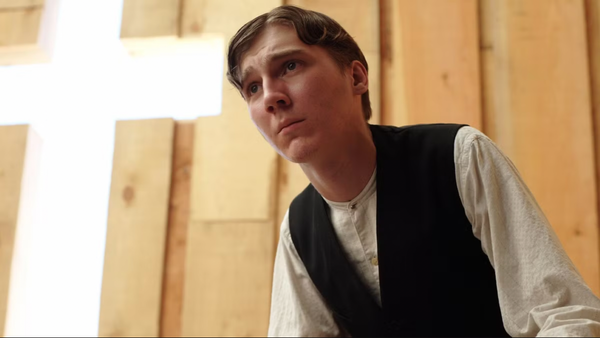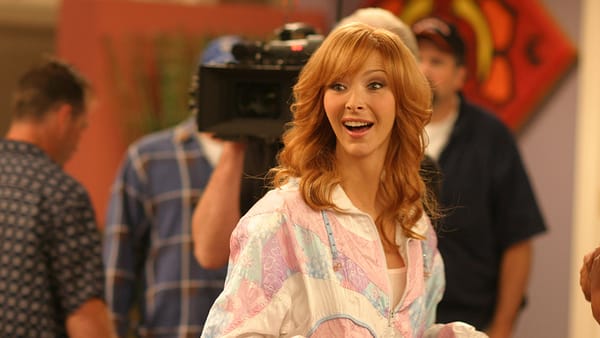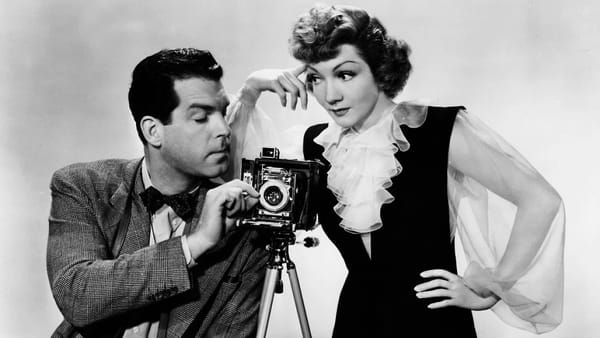Psycho. #51
Cage-i-ness.
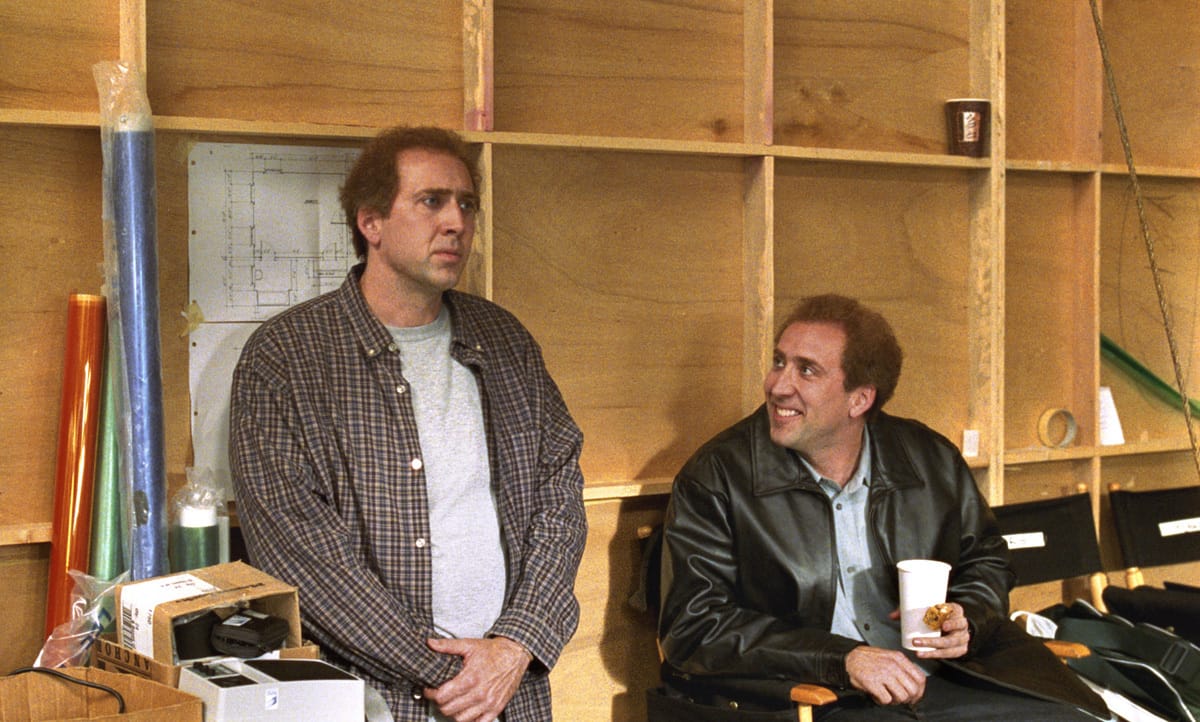

Is Nicolas Cage somehow both the most overrated and underrated actor of all time?
No, I don’t think so. In my view, Nicolas Cage is rated exactly right, in fact — beloved by his fans, which is entirely their prerogative, and assessed more coldly by those who sit outside the cult. I think it is commonly agreed that Cage is talented, but that he occasionally squanders that talent or misapplies it, sometimes lifting a mediocre film and sometimes hindering a decent one. These things seem, to me, to be fairly common knowledge!
And yet I do know what you mean, because — on a simple level — Cage has earned a following for the way he performs (which probably overestimates the actual quality of the acting he produces), but is generally not appreciated by critics, who tend to overlook his quiddity, or Cage-i-ness — the things that make Cage Cage.
Your question is good, but —if I may be so rude — a better question would try to get at that particular Cage-i-ness. What is Cage actually doing? What does it contribute to films, what does it say about our moment? Is there such a thing as a Cage oeuvre? What does he mean? Those are better things to consider, in my opinion. They may in turn lead us to an answer as to whether Nic Cage is correctly assessed, because — hopefully — they will tell us whether what he does has value, to his medium and his age.
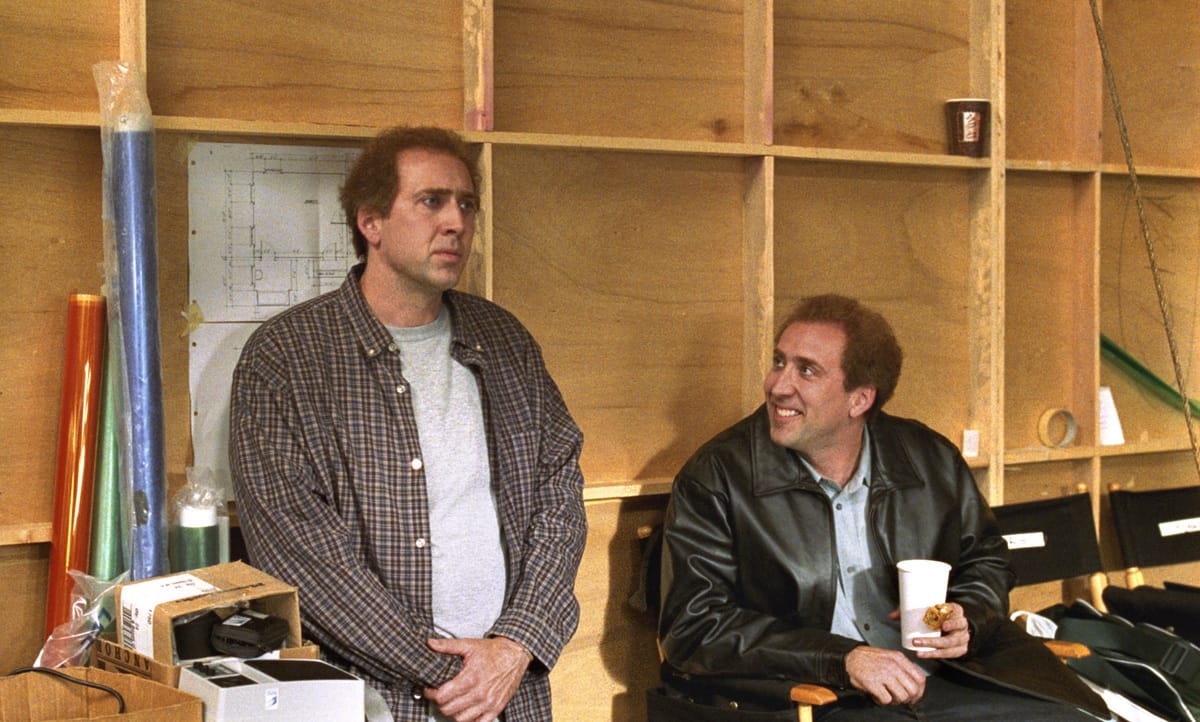
I reckon a key thing to do is to set Nicolas Cage in context, because too often the guy can seem like a mercurial, alien figure, who carved out a distinctive career on his own. The phrase “nepo baby” is overused now and can tend to make the rather more troublesome problem of nepotism seem cute and funny, but it’s important to remember Nicolas Cage’s roots as a Coppola, and a beneficiary of his uncle Francis Ford Coppola, who cast the young man in three films (1983’s Rumble Fish, 1984’s The Cotton Club, and 1986’s Peggy Sue Got Married) towards the start of his career. The fact of his nepotism gives Nicolas Cage a certain freedom of performance: it means that he has a licence to act in a more outlandish way than other performers, safe in the knowledge that he is unlikely to be fired. I think you can see a kind of Kendall Roy-like puffing of his chest in certain roles: a great desire to prove himself, to go beyond the opportunities that have landed in his lap, to show his real worth.
Cage isn’t bad in his early roles, exactly, but you get the sense of somebody who is straining to do something. An early hero of Cage’s was James Dean, which makes sense: Dean was an extremely studied actor, whose screen acting rests on a kind of extra-filmic understanding of him as a star. He is deeply emotional, he embodies ‘coolness’, and there is a recognisable iconography in his look. I think you can discern some sort of aping of that affect in Cage, in his manner of presenting himself and in his desire to display freedom. And yet I think that this style — the youth-in-revolt demeanour of Dean (and Clift, and Brando) — was probably a little tired, a bit incongruous, by the time Nicolas Cage got going in the 1980s. James Dean (and Brando, and Clift) was a queer man imposing a new idea of masculinity and modernity in post-war America, a counter-cultural rebelliousness and sensitivity displayed by the Beat generation as a response to a prevailing social conservatism. Now it may be that thirty years later, at the time of Ronald Reagan, there was a new need to push against the strictures of conservative America. But as modelled by the “brat pack” generation — including Cage — that type of cool seems inward-looking and reverential, nostalgic even; I think it serves the status quo, rather than punctures it.
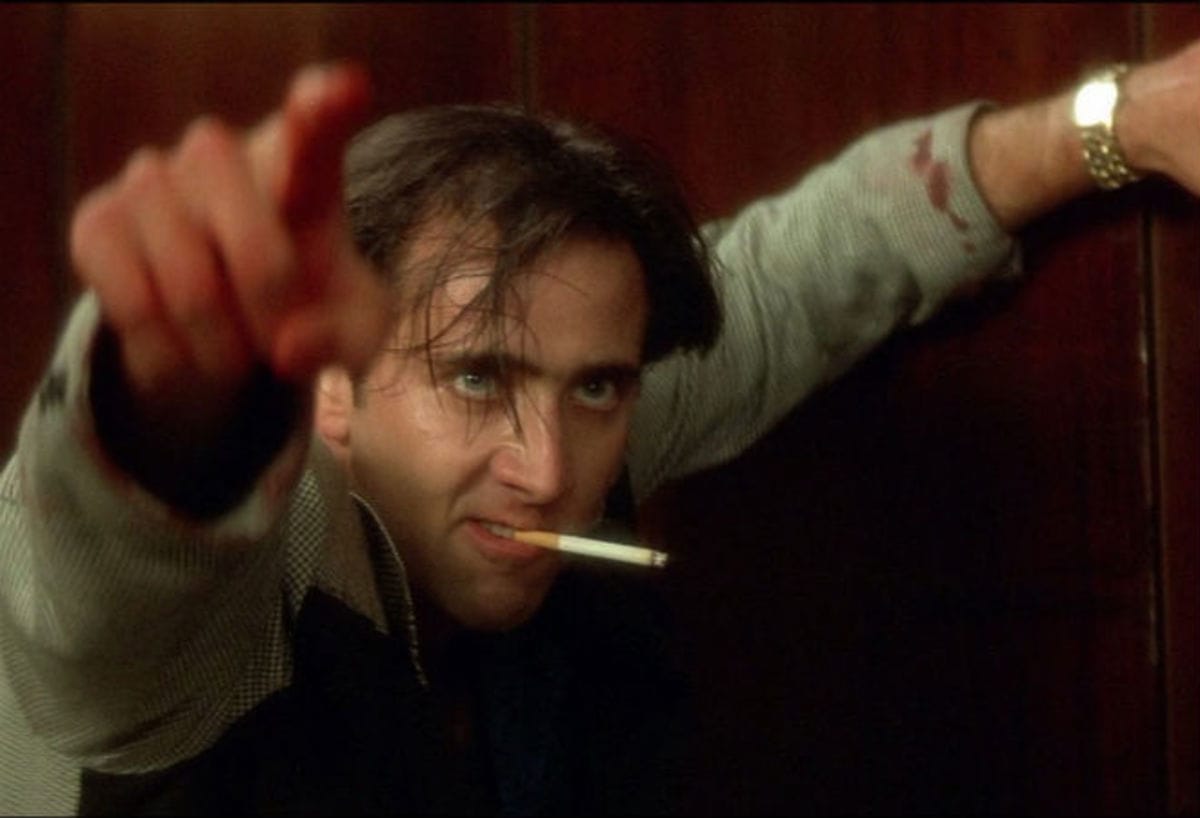
And yet Cage could be savvy in his choices, and fairly early on he plumped for directors (David Lynch, the Coen Brothers) who were interested in taking a skewed, ironic look at America. But look at Wild At Heart (Lynch, 1990): yes, it’s pop and postmodern, and rehearses Lynch’s interest in an alternative society, the underbelly of the USA, but Jonathan Rosenbaum was not wrong when he wrote that “Lynch is ultimately interested only in iconography, not characters at all. When it comes to images of evil, corruption, derangement, raw passion and mutilation (roughly in that order), Wild at Heart is a veritable cornucopia.” Wild At Heart’s pleasures are on the surface, and Cage is a part of that: he plays at acting in the film; there are inverted commas around his performance. In other words: does his acting style say anything? What are we looking at?
A few years ago, some friends and I attempted to watch all of Nicolas Cage’s films, and would gather every few days at each other’s houses for a double bill from his filmography. We watched everything from Face/Off (a lot of fun!) to 8MM (horrific!) via The Wicker Man (hilarious), National Treasure (goofy), City of Angels (abysmal) and Captain Corelli’s Mandolin (abysmal). Along the way there are some genuinely good films (Moonstruck, Adaptation., Bad Lieutenant: Port of Call New Orleans), but these are far and few between, in a CV that seems to be interested more in posturing, or in playing around, than in fully inhabiting a character. In Con Air, you get the sense that Cage doesn’t completely realise what a charade he’s appearing in: the film jogs along and is even extremely enjoyable after several beverages, but is Cage in on the joke? Or does he imagine that the film actually is “cool” and “good”, that the imagery of deserts and wife-beaters and sweat and brainless quips has value? It seems to me that he plays it mostly straight, and actually buys into the idiotic spectacle: that makes the film even more silly, and enjoyable, but it doesn’t do a great deal of credit to him as an actor or a thinker.
Send your questions anonymously to Caspar at this link, no personal information is collected.
Cage is of course appreciated in an “ironic” way, because the level of performance on which he operates shows up the sheer artifice of the movies; there is perhaps even something subversive about how fully B-movie his career has become, lurching from one grim paycheck to another. Every so often a film comes out that raises its neck a little above the abyss, and we’re told that Cage is back: we were told that Mandy (Panos Cosmatos, 2018) was a classic, colour-drenched fantasmagoria; that Pig (Michael Sarnoski, 2021) was a downbeat, restrained performance; that The Unbearable Weight of Massive Talent (Tom Gormican, 2022) was a new Being John Malkovich. But Mandy, while it had some formal interest, was under-written and complacent; Pig was drab (although Cage did rein it in somewhat) and The Unbearable Weight of Massive Talent felt like fan lip-service. Throughout, Cage “does Cage”, which is to say that he comes up with counterintuitive line readings, dons terrible wigs, has bizarre mannerisms, and usually plays somebody on what I would call the weirdness spectrum. This throws up the odd pleasure, but often Cage acts against the best interests of a film — as was the case with his best recent effort, Dream Scenario (Kristoffer Borgli, 2023). The film has a pleasingly peppery, even cynical viewpoint, as well as some nifty visual ideas, and Cage initially seems to be a decent pick for this high concept film — à la Adaptation. — in which he plays a professor who starts appearing in the dreams of others. But ultimately, his performance draws too much attention to himself, and Cage can’t — or is unwilling to — adapt to the movie’s rhythm and language. His trailing drawl murders some comedic scenes; his existing persona hampers his creation of an everyman. And yet, it didn’t have to be this way! Look at him in Moonstruck, a delight, where he’s legitimately charming, and doesn’t detract from the film itself! Perhaps appearing opposite Cher is what did it; maybe the two should co-star in every film henceforward.
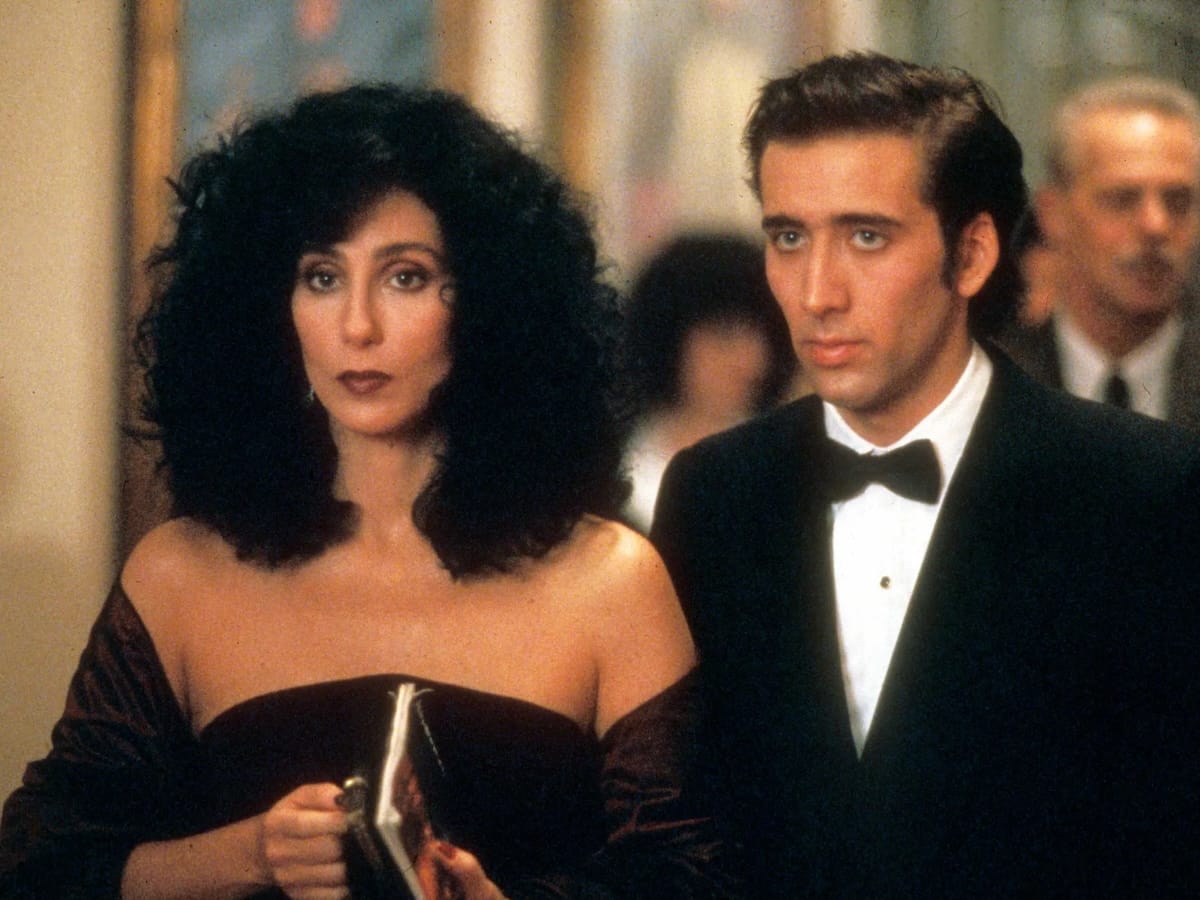
Cage is most interesting as a sort of ongoing performance piece, in which he plays himself, and plays at acting. His chat show entrance, his recitation of the alphabet in Vampire’s Kiss, his absurd debt that forces him to take any paycheck that comes his way, or the fact that he named his son Kal-El: these are the central lines of a persona which seems to hold more interest than his performances, no matter how pleasurable on the surface they sometimes manage to be. “Nicolas Cage,” the person — and this is what The Unbearable Weight of Massive Talent tried to riff on, unsuccessfully — has now created his own mythos, as a sort of cross between Christopher Walken, Tom Cruise and ‘ALF’ from ALF, and there is something rather poignant about seeing that person age. Is he in on the joke? Does he even know there is a joke? What motivates him? Is he interested in being in good films? None of these questions has a firm answer, but in the meantime this formerly thrusting young buck, embarrassingly earnest and striving, loud and not quite on message, showing charisma, some sex appeal and glimpses of raw talent, is ageing into a raddled, eccentric old uncle of the movies, out there on the sidelines, still turning up and saying his lines, wearing the wigs and doing too much, and the movies get smaller and smaller and smaller and smaller, while Cage stays the same size as ever.
Send your questions anonymously to Caspar at this link, no personal information is collected.

